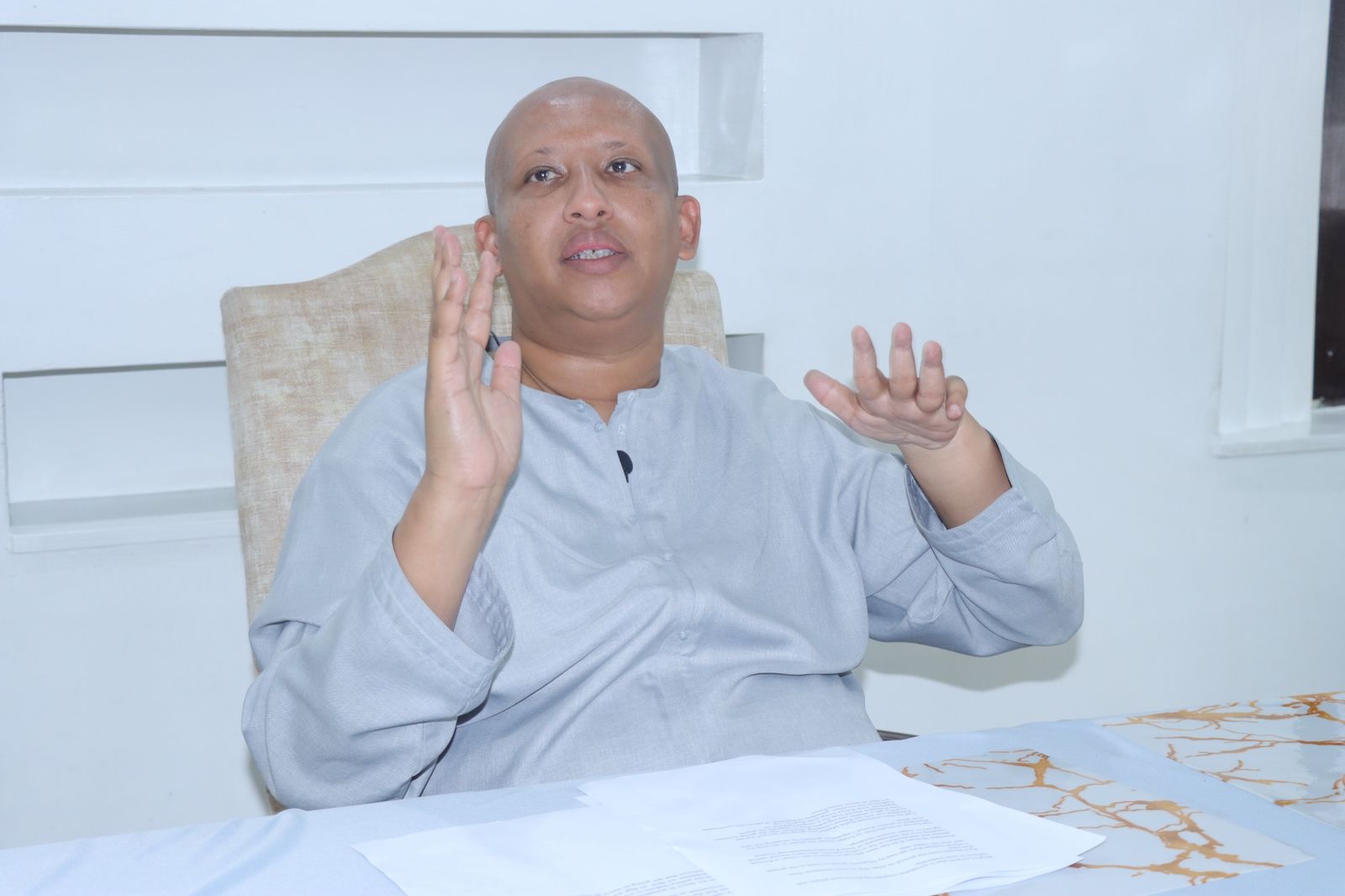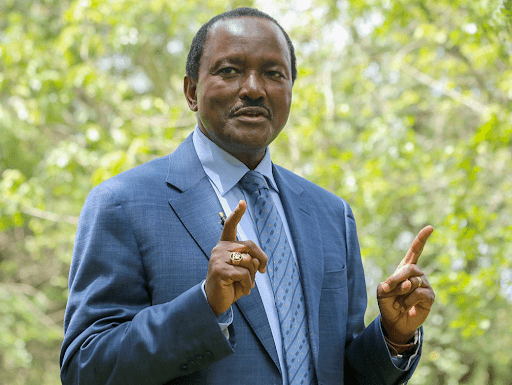
 Northern Kenya PWD chair Hafid Maalim speaking to the press in Garissa town. [PHOTO: STEPHEN ASTARIKO]
Northern Kenya PWD chair Hafid Maalim speaking to the press in Garissa town. [PHOTO: STEPHEN ASTARIKO]Persons with disabilities in the
country are now calling for political goodwill from both the national and
county governments to ensure the full implementation of the newly assented law.
On Thursday last week, President
William Ruto, at a ceremony held at State House, signed the Persons with
Disabilities Rights Bill, 2025, into law.
The legislation, sponsored by
Senator Crystal Asige, repeals the outdated 2003 Act and establishes a robust,
constitution-aligned framework for Persons with Disabilities (PWDs).
The law replaces the Persons with
Disabilities Act, Cap. 133, and takes a rights-based approach to disability.
Speaking to the press on Friday,
Northern Kenya PWD chair Hafid Maalim, while describing the development as a
major victory for human rights and dignity, said that its full implementation
is what matters.
He said that while it is a milestone
for PWDs, its practical enforcement and implementation will make a real
difference.
He said past laws for PWDs were only
partially implemented or poorly monitored, saying that going forward they would
not wish the same to happen under the new law.
“As stakeholders, advocates, and
members of the disability community, we extend our heartfelt gratitude to
President Ruto for signing the Disability Rights Bill into law. We stand ready
to support its implementation and build a more inclusive Kenya for all,” he
said.
He added:
“This landmark legislation is a
monumental step towards inclusion, dignity, and equal opportunities for persons
with disabilities across Kenya. Your leadership in advancing the rights and
well-being of all citizens, regardless of ability, is deeply appreciated. The
law marks a turning point in ensuring that no one is left behind.”
Maalim remains optimistic that PWDs
in Northern Kenya stand to greatly benefit from the new law, saying that they
are still faced with a myriad of challenges, among them socio-economic,
cultural, and infrastructural factors.
“Our people are still faced with
limited access to education, inadequate healthcare, stigma and discrimination,
poor infrastructure, and limited access to employment opportunities. We remain
optimistic that things will change for the better,” he said.
The law guarantees and affirms the
rights of PWDs to education, employment, healthcare, and political
participation, while mandating both national and county governments—and indeed
the private sector—to fulfill their obligations.
It prohibits all forms of discrimination
against people with disabilities in all aspects of life and requires reasonable
accommodations in public places, transportation, and information and
communication technologies.
It introduces broad financial
incentives and reliefs, such as tax breaks for employers of people with
disabilities and deductions for workplace accessibility improvements.
The bill also imposes penalties for
violating PWDs' rights and protects them from abuse and exploitation.
During the ceremony held at State
House, President Ruto described the new law as "a progressive piece of
legislation" that reaffirms the dignity and rights of people with
disabilities while also aligning national laws with Kenya's Constitution,
specifically Article 54, which enshrines their rights.
A revitalized and empowered National
Council for Persons with Disabilities will oversee enforcement and
coordination, serving as an independent statutory body with broad authority to
advise, investigate, and act on disability-related issues.
Additionally, the bill outlines
clear obligations for both national and county governments, including the
implementation of national disability policies at the local level, the
formation of county advisory committees, and a requirement that at least five
percent of all employment opportunities in county governments be reserved for
persons with disabilities.
The bill includes strong social
protection provisions, requires universal design standards for public spaces
and transportation, and ensures rights across sectors.
It sets aside at least 5% of market
stalls for people with disabilities and exempts assistive devices from taxes
and levies.
In education, the bill guarantees
inclusive learning environments that include accommodations tailored to the
needs of students with disabilities.
It mandates safeguards in the
delivery of healthcare to people with disabilities, as well as free medical
rehabilitation services.










